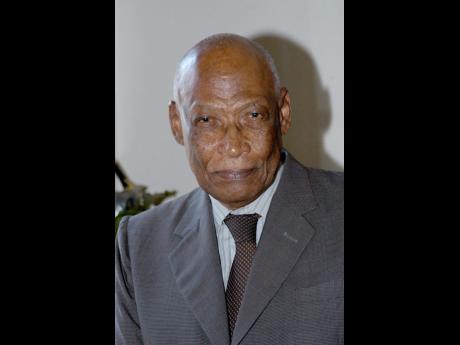Reparation – a legal perspective
When Britain captured Jamaica from Spain in 1655, the enslavement of black people brought from Africa that was practised under Spanish rule continued under British rule. Although slavery was not legal in 17th-century Britain, in Jamaica, a colony of Britain, the ruling class of slave owners passed laws that recognised slavery as legal and not a crime in Jamaica. This was like having the burglar write the larceny law, where burglary would not be a crime.
In January of this year, the Parliament of Jamaica considered a private member's motion by MP Mike Henry concerning the situation of the people from Africa who were enslaved in Jamaica. By a unanimous vote in the House of Representatives, parliamentarians declared that they were entitled to reparations for the crime of slavery.
A Curse on Britain?
Looking back, in 1562, Queen Elizabeth I of the United Kingdom of Great Britain had expressed her objection to the enslavement of Africans: "Lest any of the Africans be carried off without their free consent, it would be detestable, and call down Heaven's vengeance upon the undertakers," as Thomas Clarkson wrote in his award-winning essay in 1785. But the practice continued in defiance of Her Majesty's injunction against what was from then regarded by Her Majesty to be wrong when she put a curse on the undertakers in slavery.
Later, writing a history of slave-trading, Clarkson relates (in Chapter 2 of his 1839 History) how European slave-trading began and the British involvement:
The first importation of slaves from Africa, by our countrymen, was in the reign of Elizabeth, in the year 1562.
She [Elizabeth I] seems to have been aware of the evils to which its continuance might lead, or that, if it were sanctioned, the most unjustifiable means might be made use of to procure the persons of the natives of Africa.
Captain Hawkins promised to comply with the injunctions of Elizabeth in this respect, but he did not keep his word, for when he went to Africa again, he seized many of the inhabitants and carried them off as slaves, which occasioned Hill, in the account [Naval History] he gives of his second voyage, to use these remarkable words: "Here began the horrid practice of forcing the Africans into slavery, an injustice and barbarity which, so sure as there is vengeance in Heaven for the worst of crimes, will some time be the destruction of all who allow or encourage it."
security threat
It was only in 1838 that slavery was finally abolished in Jamaica after more than 200 years. By then, the population of slaves had far exceeded the number of white slave owners, which became a threat to their security.
The black people from Africa never accepted slavery and never willingly gave up their freedom. The first recorded resistance by slaves was the revolt in 1690 at Sutton Plantation in St James, which was followed by several disturbances across the island. The most notable insurrections were the successful revolt led by Queen Nanny in the early 18th Century at the eastern end of the island to establish an independent settlement of Maroons. Then there was the Tacky rebellion in 1760 in St Mary, the Second Maroon War later that century at the western end, and Sam Sharpe's Christmas revolt in 1831-1832 telling the slaves not to work (the first instance of passive non-violent resistance), for which he was hanged. In 1833, the act was passed to abolish slavery. The resistance continued after slavery with the uprisings against the conditions under colonialism at Morant Bay in 1865 and at Frome and Islington in 1938. All were suppressed by murder and terror similar to how the uppity slaves were put down.
entrenched inferiority
After 300 years of British colonial rule in Jamaica, the inferior status that had been implanted in minds of the slaves for more than eight generations of slavery became entrenched. In the end, subjugation of the majority of the people resulted in masses of demeaned people with a culture of dependency and helplessness, unable to fend for themselves. They looked to the masters for decisions and for the provision of everything to sustain life.
The coming of Independence in 1962 transferred the authority of the masters to new rulers in a State that was only nominally independent. The country still has unacceptably high levels of illiteracy and unemployment after 53 years of Independence; is still buffeted by unrelenting crime and allegations of corruption in office; is kept afloat as a nation mainly by handouts and loans; and law and order are still maintained with brutal domination by agencies of the State as practised during colonialism.
Independence did not change the attitude of dependency and helplessness in the people to introduce an appreciation of freedom with the ability to function as an independent nation to achieve growth and sustainable development of the country. Something more was needed.
Something more is in the answer to the challenge from Jamaica's national hero, Marcus Mosiah Garvey, where he said: "Emancipate yourselves from mental slavery" - a challenge that is commemorated in Redemption Song, by Jamaica's internationally famous songwriter, Bob Marley.
- Frank Phipps, QC, is an attorney-at-law. Email feedback to columns@gleanerjm.com.

